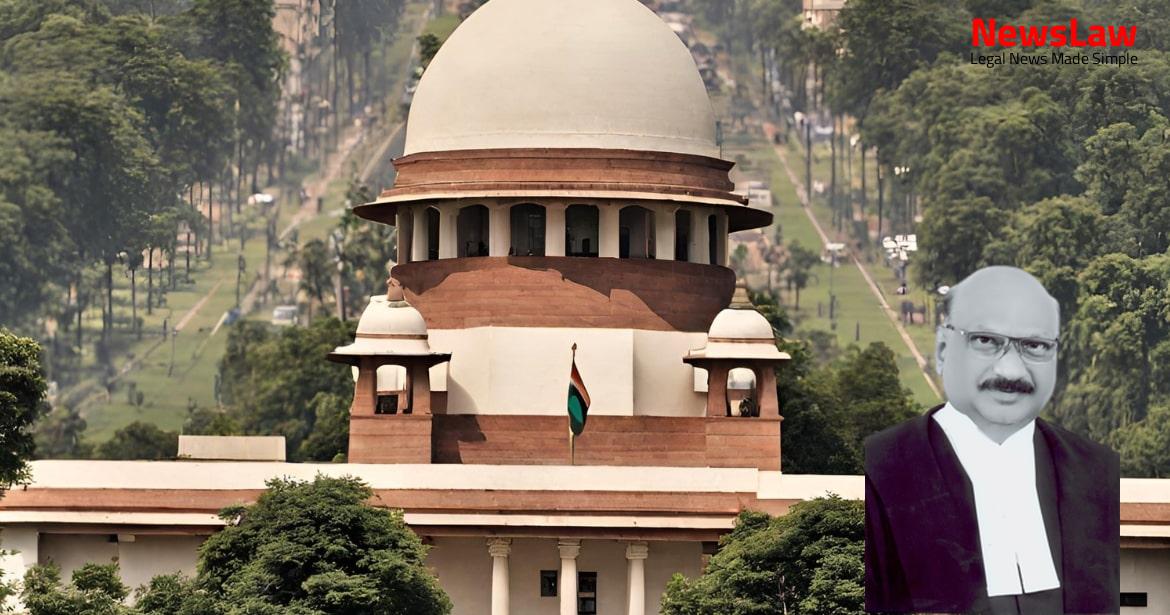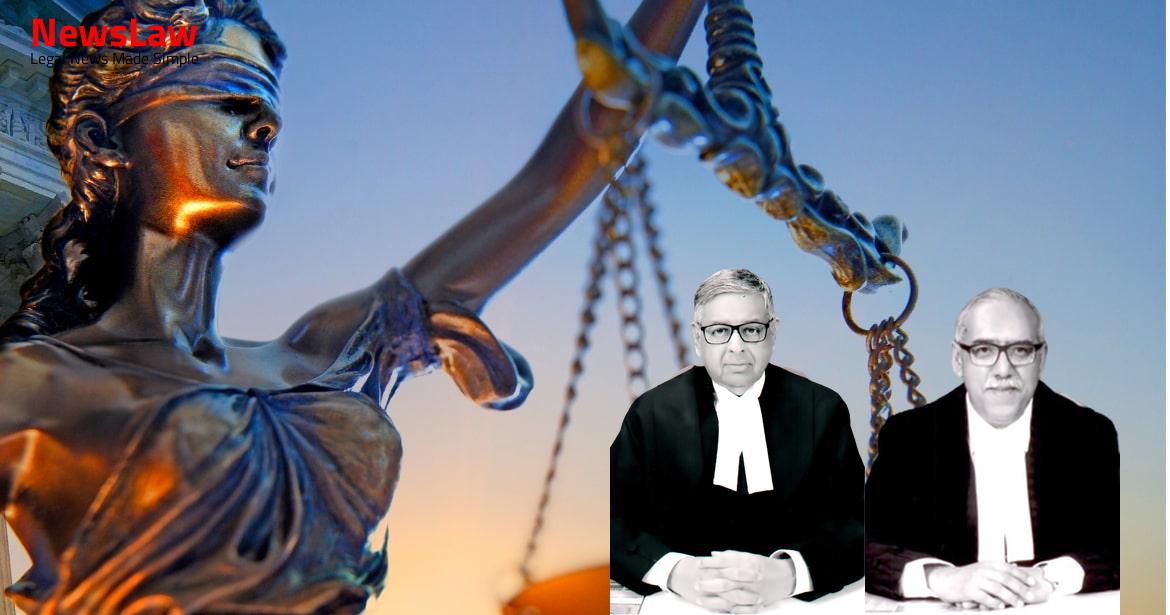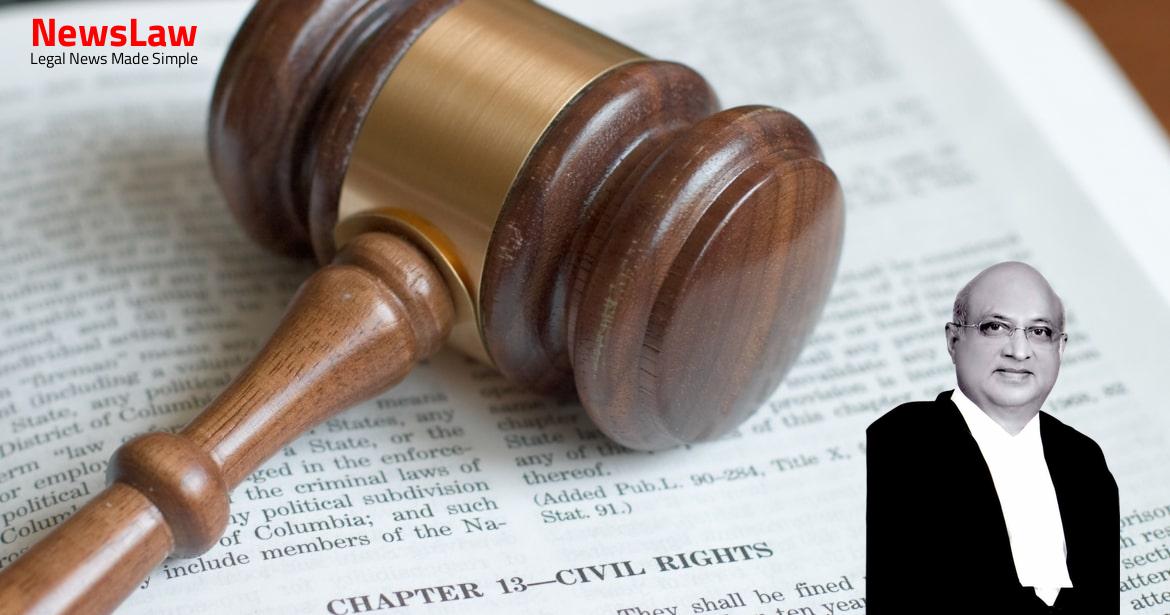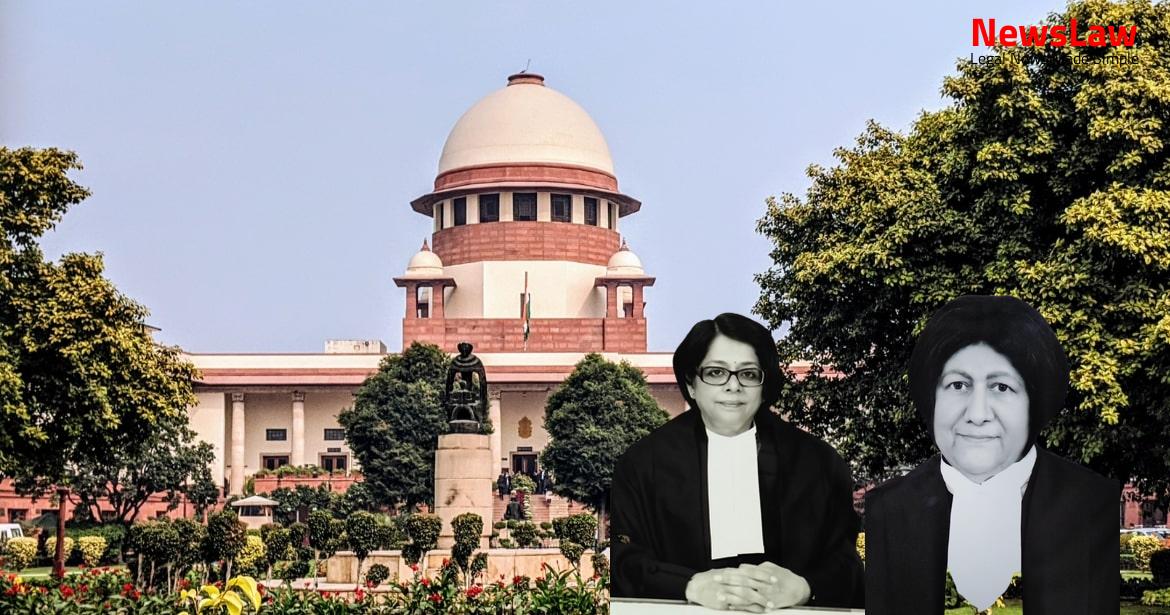In a significant legal development, the Supreme Court of India has pronounced a landmark judgment in the case of Parasvanath Developers Ltd. v. Chandigarh Housing Board. The verdict addresses crucial issues regarding a real estate dispute and sets a precedent for future cases in the industry. This judgment marks a pivotal moment in the legal landscape concerning property rights and contractual obligations. Stay informed about the implications of this ruling as it unfolds.
Facts
- An order was passed by a 3-judge Bench of the Court on 21.04.2015 in an SLP filed against the order of the National Commission dated 05.03.2013.
- The Court affirmed the findings in the arbitration award regarding the interpretation of Clause 9(c) of the Tripartite Agreement.
- Rs. 1 lakh was awarded for mental harassment and another Rs. 1 lakh towards litigation charges.
- The liability to refund advances collected from residential unit buyers was found to be a result of breaches by both the Developer and CHB according to the arbitrator.
- The payment of compensation under Clause 9(c) was deemed applicable against the Developer if unable to offer a flat to the buyer after 36 months as per Clause 9(a) of the Tripartite Agreement.
- The National Commission directed CHB and the Developer to pay a principal sum of Rs. 1,03,31,250 at 10% p.a. to the complainant based on the arbitration award attributing breach of the Development Agreement to both parties.
- CHB argued that disputes only existed for land earmarked for commercial activities and there was no dispute with respect to the 123 acres of land handed over to Parasvanath Developers Ltd. for residential units.
- CHB contended that Parasvanath Developers Ltd. was liable to satisfy the claim of the flat buyer, and the complaint was not valid against CHB for misjoinder of party.
- The dispute between Parasvanath Developers Ltd. and CHB regarding the Development Agreement was referred to arbitration.
- The flat buyer sought a refund of the deposit amount of Rs.1,03,31,250 with interest at 20% p.a.
- Similar complaints were filed by other flat buyers before the State Commission and the National Commission.
- Parasvanath Developers Ltd.’s bid was accepted by CHB for the integrated project at Rajiv Gandhi Chandigarh Technological Park.
- A Tripartite Agreement was executed between Parasvanath Developers Ltd., CHB, and the Complainant on 23.04.2008.
- The Tripartite Agreement stated that construction of the flat was to be completed within 36 months from the signing of the Development Agreement between CHB and Parasvanath Developers Ltd. on 06.10.2006.
- The Complainant found out in September-October 2009 that construction had not commenced at the project site.
- The Developer claimed that construction delays were due to CHB’s failure to provide unencumbered land for construction.
- Litigation costs and mental harassment payments were contested by CHB against the order from the National Commission.
- CHB and Parasvanath Developers Ltd. entered into a Development Agreement on 06.10.2006 for the grant of development rights on 123 acres of land.
- The land was allotted to Parasvanath Developers Ltd. for constructing residential units under the project ‘Parsvanath Pride Asia’.
- The Complainant applied for a five-bedroom apartment in this project and paid Rs.1,03,31,250/- out of the total price of Rs.3,93,25,000/-.
- The National Commission ordered on 05.03.2013 that flat buyers should not be deprived of their legitimate claims due to disputes between CHB and Parasvanath Developers Ltd.
- When the refund was not made, the Complainant approached the National Commission on 24.02.2011.
Issue
- The Tripartite Agreement executed between the Complainant, CHB, and the Developer on 23.04.2008 is relevant to the issue at hand.
- The agreement stated that construction of the residential units should be completed within 36 months of the signing of the Development Agreement on 06.10.2006.
- Any delays due to force majeure, circumstances beyond the control of the developer, or restraints from Courts/Authorities would not be counted towards the 36-month period.
- The delay in grant of development clearances beyond 12 months of the signing of the Development Agreement was specifically excluded from the 36-month timeline.
Also Read: Opium Possession Case: Upholding Conviction and Sentence
Arguments
- The amount in question is considered compensation and should be borne by the Developer as per Clause 9(c) of the Tripartite Agreement.
- 30% of the principal sum has already been paid by CHB as per Clause 9(d) of the Tripartite Agreement.
- The interest rate was debated, questioning the National Commission’s decision to raise it from 9% p.a. to 10% p.a. without providing a reason.
- A revocation deed dated 04.02.2015 indicates that all third party liabilities have been taken over by the Developer and should not be imposed on CHB.
- The order was challenged by CHB due to being wrongly burdened with the responsibility of paying 30% of the amount towards mental harassment and litigation costs.
- Clause 9(c) was argued not to be applicable to the case as it deals with compensation upon non-performance of obligations, different from the nature of compensation awarded in the impugned order.
- The amount awarded to the Complainant was stated to be a general, lump sum amount, not the compensation contemplated under Clause 9(c) of the Tripartite Agreement.
- Inter se dispute between CHB and the Developer regarding liability apportionment should not hinder the Complainant’s right to receive compensation.
- The contention that the impugned order should be set aside due to the nature of mental harassment and litigation costs as compensation solely payable by the Developer under Clause 9(c) was not accepted.
- The National Commission’s decision to direct payment towards mental harassment and litigation costs in the ratio of 70:30 was questioned, as it might fall under Clause 9(c) for sole payment by the Developer.
- Previous orders detailed the apportionment of liability based on arbitration awards, and the 70:30 ratio should be followed.
Also Read: Interpretation of Will Clauses in Property Dispute
Analysis
- Clause 9(c) of the Tripartite Agreement specifies the conditions for compensation to the buyer if possession is not offered within 36 months.
- The liability for compensation under Clause 9(c) is on the Developer if they fail to fulfill obligations under the Development Agreement.
- Clause 9(c) mandates a fixed compensation of Rs.107.60 per sq meter per month to be paid to the buyer.
- The Developer’s failure to begin construction due to disputes with CHB means Clause 9(c) is not applicable in this case.
- The arbitrator’s award confirmed that both CHB and the Developer are liable for any refunds, interest, or compensation to the buyer.
- The revocation deed dated 04.02.2015 cannot absolve the Developer of its obligations under the Tripartite Agreement and the arbitration award.
- The apportionment of liability between the Developer and CHB as per the arbitration award must be honored, with a split of 70:30.
- The Developer and CHB agreed to complete construction within 36 months from the signing of the Development Agreement.
- The Appellant’s reliance on the revocation deed is misplaced as it confirms acceptance of the arbitrator’s award.
- The National Commission’s order directs the amount to be paid by the Developer and CHB in a 70:30 ratio.
- The compensation awarded in the order does not align with Clause 9(c) of the Tripartite Agreement.
- Litigation costs and mental harassment compensation cannot be equated to the specific compensation mentioned in Clause 9(c).
- The revocation deed does not supersede the arbitration award’s direction for compensation by the Developer and CHB.
- The revocation deed may settle disputes under the Development Agreement but does not negate liability under the Tripartite Agreement.
- The National Commission’s decision to enhance the interest rate was made using discretionary power and should not be interfered with
- The direction to pay Rs. 2 lakhs towards mental harassment and litigation costs was deemed correct
- The National Commission’s decision to impose compensation in the ratio of 70:30 between the Developer and CHB was found to be fair
- The National Commission’s direction to pay the principal sum of Rs. 1,03,31,250 at 10% p.a. to the Complainant was upheld
Decision
- The instant appeal has been dismissed as per the court’s order dated 04.12.2019.
- The Developer has deposited the amount awarded by the National Commission with interest at 10% p.a.
- CHB is directed to pay the remaining amount of 30% of the total Rs. 2 lakhs awarded by the National Commission to the Complainant for mental harassment and litigation charges.
- CHB is also required to pay an additional interest of 1% p.a. on its share of the principal sum.
- The payment should be made within eight weeks from the date of this order.
- CHB has already paid its share of the principal sum along with interest at 9% p.a.
Case Title: CHANDIGARH HOUSING BOARD Vs. M/S. PARASVANATH DEVELOPERS PVT. LTD.
Case Number: C.A. No.-010748-010748 / 2016



